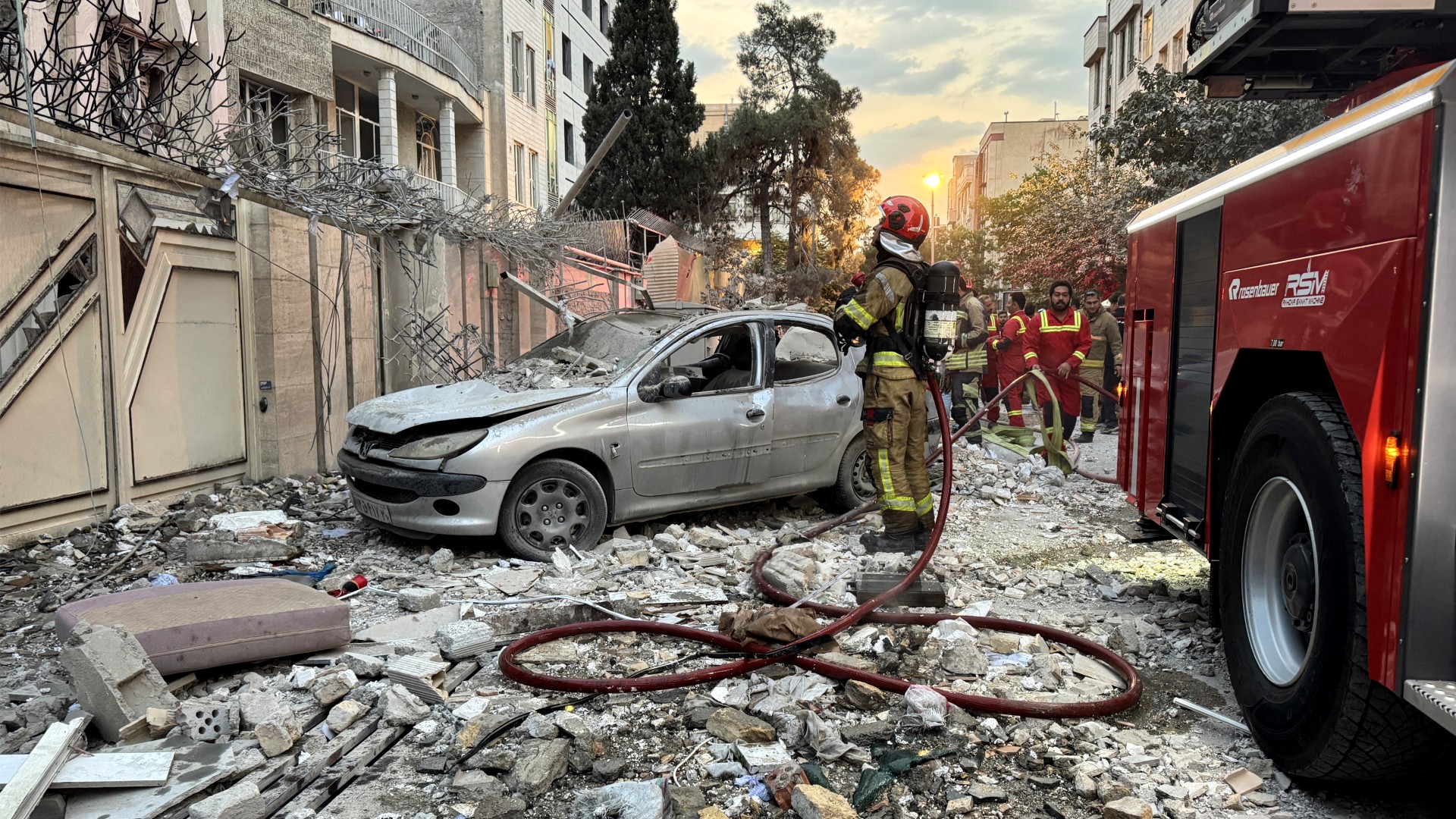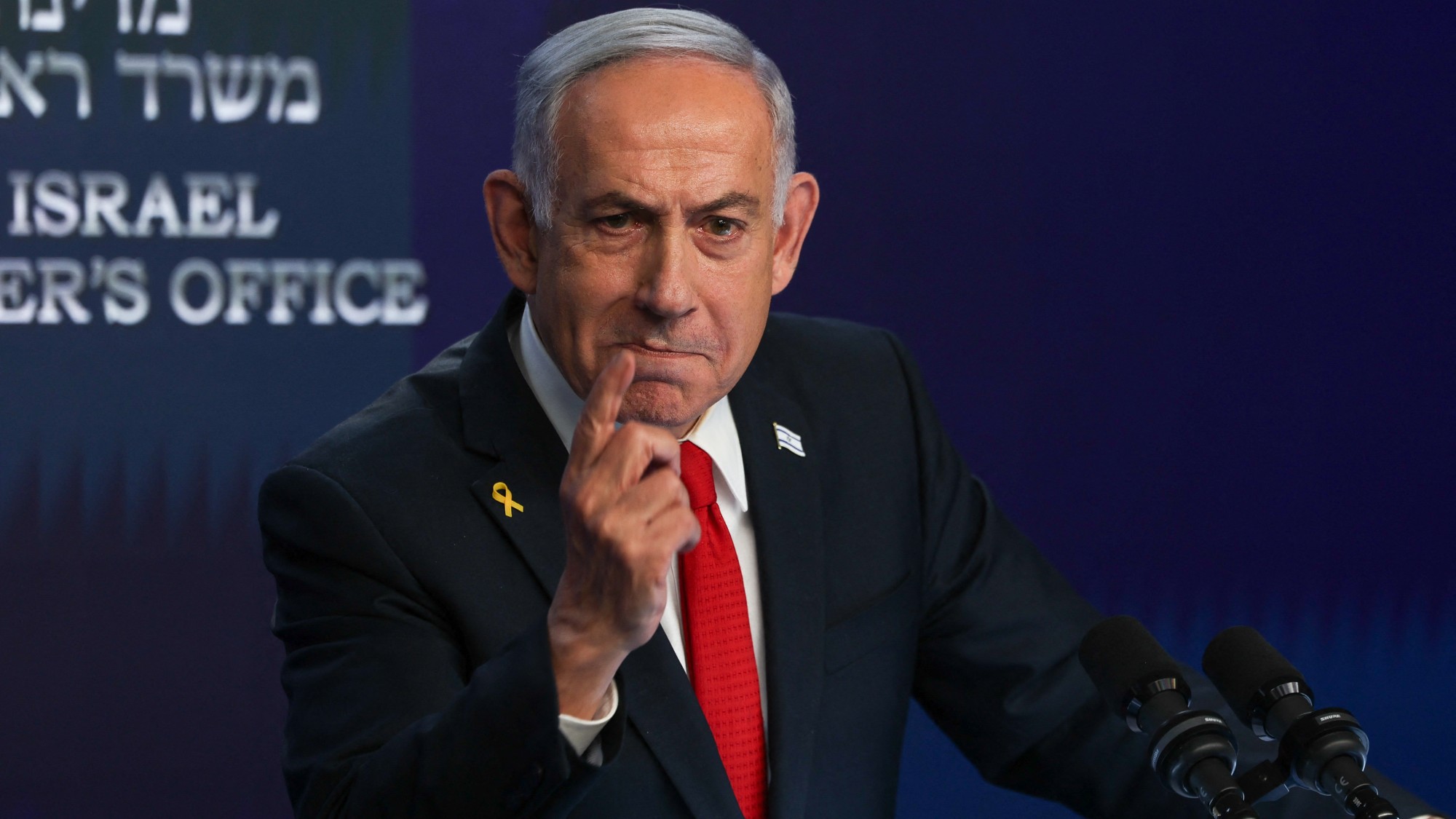Report on allegedly Iran-backed drone strikes highlight need for U.S. to leave Iraq, security analyst argues
A free daily email with the biggest news stories of the day – and the best features from TheWeek.com
You are now subscribed
Your newsletter sign-up was successful
Iran-backed militias are using "small, fixed-wing drones that fly too low to be picked up by defensive systems" in Iraq, U.S. military officials and diplomats told The Washington Post.
One of the drone strikes reportedly targeted a CIA hangar in April. No one was harmed, but a preliminary analysis of its partially-recovered remains suggests it was made in Iran, worrying the White House and the Pentagon, which are already on high alert over rocket strikes on American-populated bases. Alberto Miguel Fernandez, the vice president of the Middle East Media Research Institute and a longtime American diplomat, tweeted Saturday that the news isn't all that surprising given that Tehran has already armed "other proxies in Yemen, Lebanon, and Gaza with drone technology," but he said the real question is how the U.S. will respond.
Per the Post, some U.S. officials "advocated serious consideration of a military response" before the Biden administration decided against it. One Iraqi solider stationed at an airbase that was targeted in a similar attack in May told the Post "the coalition was very upset" and "told our commanders that it was a major escalation." But Daniel DePetris of Defense Priorities, a national security think tank in Washington, D.C., thinks the revelation should expedite the U.S.'s full exit from Iraq.
The Week
Escape your echo chamber. Get the facts behind the news, plus analysis from multiple perspectives.

Sign up for The Week's Free Newsletters
From our morning news briefing to a weekly Good News Newsletter, get the best of The Week delivered directly to your inbox.
From our morning news briefing to a weekly Good News Newsletter, get the best of The Week delivered directly to your inbox.
At this point, he argues, the U.S. military can't resolve the issues in the region and "the longer U.S. forces remain in Iraq, the more likely one of these rocket attacks will eventually kill or seriously injure a U.S. service member or contractor. The U.S. would be forced to respond militarily, which would kick off a cycle of escalation none of us want," DePetris tweeted. Read more at The Washington Post.
A free daily email with the biggest news stories of the day – and the best features from TheWeek.com
-
 How Democrats are turning DOJ lemons into partisan lemonade
How Democrats are turning DOJ lemons into partisan lemonadeTODAY’S BIG QUESTION As the Trump administration continues to try — and fail — at indicting its political enemies, Democratic lawmakers have begun seizing the moment for themselves
-
 ICE’s new targets post-Minnesota retreat
ICE’s new targets post-Minnesota retreatIn the Spotlight Several cities are reportedly on ICE’s list for immigration crackdowns
-
 ‘Those rights don’t exist to protect criminals’
‘Those rights don’t exist to protect criminals’Instant Opinion Opinion, comment and editorials of the day
-
 How long can Nato keep Donald Trump happy?
How long can Nato keep Donald Trump happy?Today's Big Question Military alliance pulls out all the stops to woo US president on his peacemaker victory lap
-
 How far would Russia go for Iran?
How far would Russia go for Iran?Today's Big Question US air strikes represent an 'embarrassment, provocation and opportunity' all rolled into one for Vladimir Putin
-
 How the Israel-Iran conflict broke out
How the Israel-Iran conflict broke outThe Explainer Israel's strike on Iran's nuclear and missile programmes was years in the planning
-
 Will the UK get involved in the Israel-Iran conflict?
Will the UK get involved in the Israel-Iran conflict?Today's Big Question Keir Starmer is 'walking a tightrope' in helping Israel limit Tehran's nuclear capabilities without being seen to do so
-
 What happens if Israel attacks Iran?
What happens if Israel attacks Iran?TODAY'S BIG QUESTION Israel is 'ready to strike' and Tehran has plans for counterattacks against the US as nuclear talks appear deadlocked
-
 Russia and Iran 'up the ante' after meeting in Turkmenistan
Russia and Iran 'up the ante' after meeting in TurkmenistanThe Explainer Two nations talk up their closer ties but some in Tehran believe Putin 'still owes' them
-
 Israel's wars: is an end in sight – or is this just the beginning?
Israel's wars: is an end in sight – or is this just the beginning?Today's Big Question Lack of wider strategic vision points to 'sustained low-intensity war' on multiple fronts
-
 Iran and Israel: is all-out war inevitable?
Iran and Israel: is all-out war inevitable?Talking Points Tehran has vowed revenge for assassinations of Hamas and Hezbollah leaders, but Gaza ceasefire could offer way out